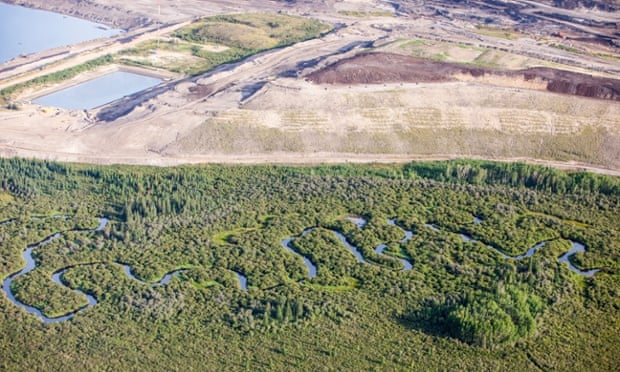Our First Australians have the longest continuing culture in the world. It is a culture that is both vibrant and unique, and which more international visitors to Australia desire to experience.
Aboriginal Australian culture is thought to be the world's longest continuing surviving culture!
An obvious target for tourism that can benefit everyone; by providing jobs and keeping the culture alive.
Showing posts with label A2 BIODIVERSITY. Show all posts
Showing posts with label A2 BIODIVERSITY. Show all posts
Thursday, 16 July 2015
Friday, 19 June 2015
No more nutella......
If you chocolate spread- look away now!
Eating Nutella has been said in the guardian this week, to damage the environment- especially the Indonesian rainforest- which is cleared every year to grow palm oil.
BUT the company that makes it; ferrero says it is made from SUSTAINABLE palm oil.
Wednesday, 8 April 2015
Life above Canada's oil bed- tar sands
Life above the Canadian tar sands

A look at threats to the people of the Alberta tar sands way of life- the main one being the oil industry.

A look at threats to the people of the Alberta tar sands way of life- the main one being the oil industry.
Friday, 20 March 2015
Prince Charles' attitude to the environment 2015
Prince Charles was awarded the Teddy Roosevelt conservation award for his action towards conserving the world's environments on the 19th March 2015.

Prince Charles and his son Prince William are seen as being big supporters of preserving the world's natural environments

Prince Charles and his son Prince William are seen as being big supporters of preserving the world's natural environments
#EndWildlifeCrime conference
Tuesday, 17 March 2015
The home of the gorilla under threat from oil exploration?
Should they destroy the Virungas for oil?
The Democratic Republic of Congo’s prime minister has said that his government wants to find a way to explore for oil in the Virunga national park, a Unesco world heritage site , and will engage in negotiations with the UN body to “explore judiciously”.
Virunga, Africa’s oldest and most biodiverse park, has been on the list of ‘world heritage in danger’ since 1994, as two decades of armed conflict and intense poaching by militias has taken its toll on the park’s ecosystem.
In 2007, the Congolese ministry of hydrocarbons awarded two oil concessions straddling Virunga’s boundaries to the French major Total, as well as Soco International, a British oil company registered on the London Stock Exchange.
While Total quickly agreed to never explore within the current limits of the park – even in the event of a boundaries change – Soco has carried out exploratory activities in Virunga, concluding a seismic study in July 2014. The company said it will hand over the results of the seismic survey to the Congolese government in coming months.
Ever heard of a pangolin? If you haven't you better hurry! or you never will!!!1
The unique animal the Pangolin which looks like a dinosaur but isn't, has been declared the world's most hunted animal.


Many have fallen victim to poachers, whoi sell them for around £19 a kg.
Many have fallen victim to poachers, whoi sell them for around £19 a kg.
Saturday, 7 March 2015
Monday, 26 January 2015
Sunday, 25 January 2015
Oil spills in Montana
Tuesday, 20 January 2015
Sunday, 18 January 2015
Brazils belo monte dam
http://www.theguardian.com/environment/2014/dec/16/belo-monte-brazil-tribes-living-in-shadow-megadam


Labels:
A2,
A2 BIODIVERSITY,
A2 UNIT 3,
A2 UNIT 4,
A2 UNIT 4 CULTURE,
BRAZIL,
CONTESTED PLANET,
CULTURAL ATTITUDES TO THE ENVIRONMENT,
CULTURE,
GCSE,
PAPER 1 TOPIC 3,
YEAR 11,
YEAR 11 BIODIVERSITY,
YEAR 13
Subscribe to:
Posts (Atom)